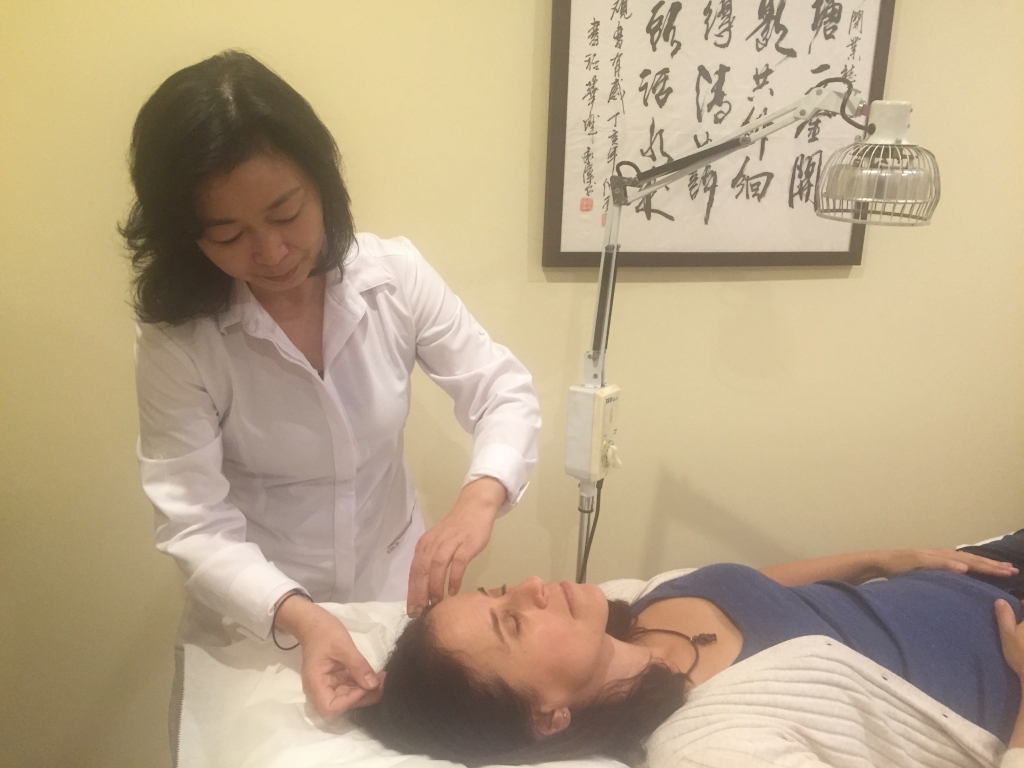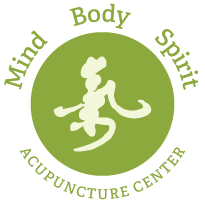Traditional Chinese Medicine (TCM) can treat menopause effectively and naturally. Every woman should go through menopause with no signs or symptoms. The symptoms of menopause such as hot flashes, insomnia, depression, and dryness are all symptoms of the body being out of balance. Acupuncture and herbs can help bring the body back to balance and relieve symptoms completely naturally with no side effects.
Acupuncture can alleviate many menopausal symptoms by rebalancing the hormonal system, especially headaches and migraines, hot flushing, heavy flooding periods, back pain and sagging skin tone. Heavy and erratic menstrual bleeding in perimenopausal women can be relieved by this technique. It also relieves the pain and headache associated with menstruation. Acupuncture also has positive effects on insomnia and stress. Treatment can also improve the mobilization of Qi (chi) to the nervous system to aid poor memory and concentration.
Menopause and TCM–How Chinese medicine understand menopause
The female system is an incredibly beautiful, complex balance. It is an individual module of the creative universe. A woman is usually a marvelous thing to be, but the intricacies of her body are delicately tuned and can become unbalanced or obstructed easily, causing pain, and poor function. A woman is such a wholly bound together person that imbalances often cause lack of union between mind and body. She loses the accustomed oneness with herself, resulting in physiological and emotional problems.
All of Chinese Medicine is about the restoration of balance in the human body.
Yin: Nourishment of the body (feminine, rest, coolness)
Yang: Functions of the body (masculine, activity, heat)
Vital Substances:
Blood: Renewable substance
Essence: Genetic dosage that is gradually used up
Men depend on Qi (activity/Yang)
Women depend on Blood/Essence (nourishment, Yin) as the foundation of reproduction cycle: includes fertility, childbirth, and lactation. Blood is more than just the menses.
Organs & Their Functions:
Chinese organs have the same names but have additional functions of Western Organs
Kidney: excretes urine/ holds the Essence (incontinence)
Spleen/Stomach digests food/creates blood
Liver holds the Blood
Heart moves the Blood
Emotions:
Lung–Grief
Kidney – fear (I was so frightened I almost peed in my pants)
Liver: I was so angry I saw red, stress & frustration;
Spleen is worry; loss of appetite
Heart: anxiety & nervousness; heart palpitations
Women’s physiology and pathology during different time of life in TCM:
Adolescents the Kidneys (Essence) is immature
Child bearing years: Liver & Spleen
Peri-menopause/menopause: Kidney Yin & Yang deficiency & imbalance
According to Chinese herbal medicine and acupuncture, we use treatment that will stimulate the body’s own ability to heal itself. We look at patient’s mental and emotional state as well, not just their physical health. We view the patients as a physical, emotional and spiritual whole, not as a collection of ailing body parts to be treated separately.
Acupuncture can alleviate many menopausal symptoms by rebalancing the hormonal system, especially headaches and migraines, hot flushing, heavy flooding periods, back pain and sagging skin tone. Heavy and erratic menstrual bleeding in perimenopausal women can be relieved by this technique. It also relieves the pain and headache associated with menstruation. Acupuncture also has positive effects on insomnia and stress. Treatment can also improve the mobilization of Qi (chi) to the nervous system to aid poor memory and concentration.
Prevention and Self-Help
Three main principles
1. Keep your emotional balance: daily relaxation
2. Exercise, Taichi, Qigong, yoga, meditation
3. Helping yourself through diet
9 food steps
1. Eat more tofu and soy
2. Eat more fruits and vegetables
3. Eat beans more often
4. Eat more of the right fats
5. Choose your beverages wisely; Drink lots of water, a grass or two of milk, and a grass of orange (or other citrus), carrot, or purple grape juice every day; Limit coffee and caffeinated beverages, soda, and alcohol
6. Don’t eat at night
7. Eat calcium –rich foods every day
8. Avoid high fat/high sugar foods to minimize calories
9. Add flaxseed to your diet
The Estrogen Food List
Legumes
Alfalfa, black-eyed peas, chickpeas (garbanzo beans). Green or French beans, green peas, lentils, mung bean sprouts, navy beans, peanuts, red beans (adzuki beans), red clover, soybeans, soy sprouts, split or field peas.
Oils
Corn, flaxseed, olive, sesame, soybean, sunflower & canola oils
Vegetables
Beets, bok choy, broccoli, cabbage, carrots, cucumbers, garlic, green peppers, mushrooms, potatoes, pumpkin, rhubarb, seaweeds, squash, sweet potatoes, yams
Spices & Herbs
Black cohosh, cloves, dong gui, fennel, ginger, hops, licorice, sage, tea, thyme, turmeric
Seeds
Flaxseed, sesame seed, anise seed, pumpkinseed, sunflower
Fruits
Apple, cherries, grapes, olives, papaya, pears, plums, pomegranates, prunes
Cereals/Grains
Barley, corn, oats, rice, rye, wheat


